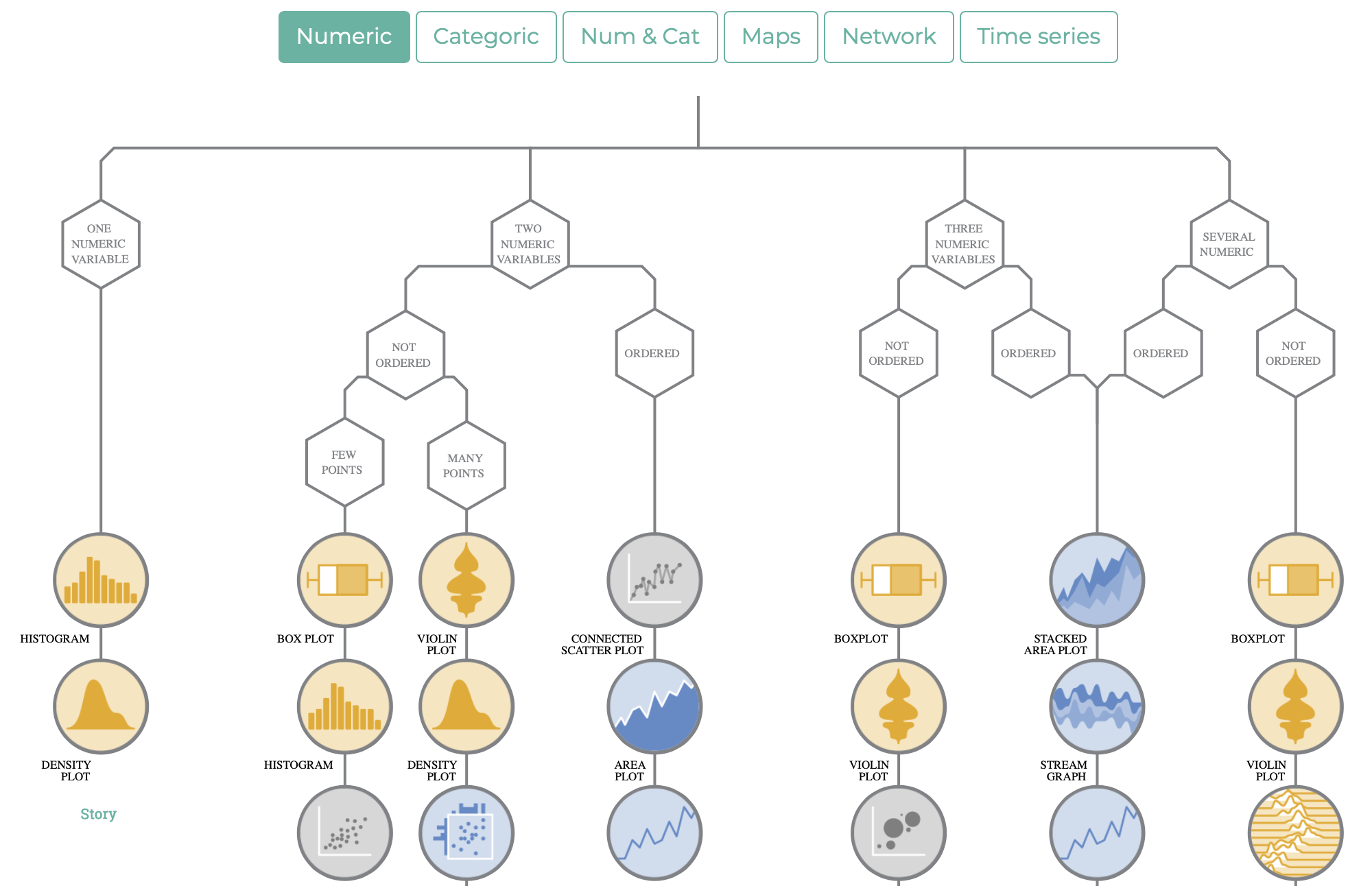Some not so random links — not posted on Twitter, nor on the Micro section.
Alex Hayes has a nice GH repository covering basic cheatsheet for one- and tow-sample hypothesis tests, along with a very brief introduction to the principle of statistical testing.
Mathematics and Computation, written by Avi Wigderson (PDF, 338 pp.), covers mathematical modeling and computational complexity theory with a special emphasis on randomness, proof and hardness.
From Data to Viz is a great ressource to find relevant statistical graphics, and their implementation in R, Python or D3. I especially like the way the authors designed the homepage. The visual taxonomy of graphical display is just splendid!

Bayesian Analysis: A CRC Press FreeBook. Be sure to grab your copy of you haven’t done before. The book is 200-page long and includes six chapters from independent textbooks (from CRC Press of course): prior distributions, Markov Chain Monte Carlo, specifying bayesian models, hierarchical linear models, nonparametric models, and model criticism and selection.
Since my last incursion into VS Code, I’ve been looking around and I found this website, where one can learn some tips and tricks about VS Code. I am sure there are better sites for collecting resources on VS Code, especially on Github, but in case you like short live coding videos, here you are.
Sander Greenland has a nice article in the BMJ on Sparse data bias: a problem hiding in plain sight. Basically, the authors recommend the use of penalized regression models to account for low event per variable situations, which are common in epidemiological studies.
I spent a good time reading the latest entry on Manuel Uberti’s weblog: Digital minimalism. I spent a good part of my time last year cleaning up my digital activities and limiting my involvement in social networks (and even social activities of any kind). Not sure if it helped being more productive, since I am not interested in this kind of metric, but it let me at least free time off for reading books and listening to music.
JavaScript versus Data Science is an online preview of the (probably) forthcoming JavaScript for Scientists and Engineers, by Greg Wilson and Toby Hodges. Don’t miss Greg Wilson’s last paper, Ten quick tips for creating an effective lesson (see also Martin Fowler’s take on designing slides).
> Webfonts were great when most computers only had a handful of good fonts pre-installed. Thanks to font creation and buying by Apple, Microsoft, Google, and other folks, most computers have good — no, great — fonts installed, and they're a great option if you want to not load a separate font. --- [System Font Stack](https://systemfontstack.com)
The Emacs Focus package allows to dim the text of surrounding sections when writing prose. I think it would be a good addition to Spacemacs stack of editing tools. Speaking of Emacs, here is a lightweight setup that provides a nice UI to our preferred text editor.